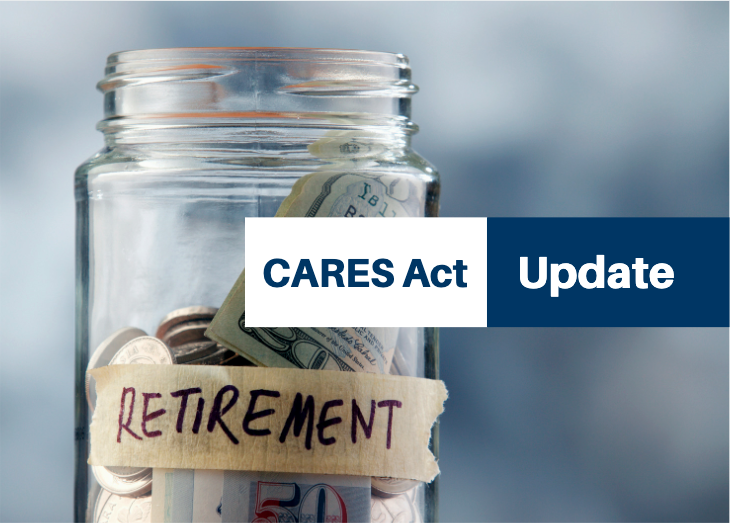New Proposed Regulations On Gifts and Estate Transfers
The Tax Cuts and Jobs Act (TCJA) of 2017 added many new provisions to the tax code. Taxpayers with larger estates initially saw a benefit from the change to the lifetime exclusion for gift and estate taxes. It increased the amount for each taxpayer from $5 million to $11 million, adjusted for inflation. (For 2019, the indexed amount is $11.4 million.) However, tax practitioners saw a catch: after 2025, the provision will sunset and the lifetime exclusion per taxpayer will revert back to $5 million. Worse yet, it was unclear what would happen to taxpayers who gave gifts that make up this extra $5 million provided by the TCJA. Thankfully, the IRS has finalized Regulation 106706-18, which provides more clarity around gifts and estate transfers. Let's take a look at what you should know if you're worried about being taxed for your generosity.
Topics: Tax Topics, Accounting Hot Topics
Are Your Employees’ Retirements SECURE? (Part 3 of 3)
Topics: Business Planning & Operations, Accounting Hot Topics
CARES Act Update: Retirement Plan Distribution Relief
The Coronavirus Aid, Relief, and Economic Security Act (CARES Act) was enacted on March 27, 2020. Since then, the IRS has issued several Notices with additional information and guidance related to the CARES Act including the tax rules applicable to employer-sponsored qualified retirement plans and individual retirement accounts (IRAs). Individuals and plan sponsors should be aware of these key provisions. Here are the highlights...
Topics: Accounting Hot Topics, COVID-19 Updates
Michigan Safety and Restart Grant Opportunities Expiring
With supplemented unemployment benefits expiring this past week and the ongoing economic impact of COVID-19, the State of Michigan is leveraging federal funding through the CARES Act to continue to support the economic recovery of small businesses in the state. Two grant programs were recently announced, with funding up to $20,000 for qualified applicants. The application periods on both grants close next week, on the 5th and 7th of August. Below is a quick summary of each grant opportunity with links for additional information and access to the applications.
Topics: Accounting Hot Topics
The IRS has revised Form 941 beginning with the filing of the 2nd Quarter of 2020, in conjunction with reporting the various Covid-19 tax credits and deductions. Please use this as a reference to assist in reviewing the information that has been filed on Form 941 by your company or your payroll provider.
Topics: Accounting Hot Topics, COVID-19 Updates
How The SECURE Act Impacts Parents and Grandparents (Pt. 2)
In Part 1 of our blog series on the SECURE Act, we discussed changes to individual retirement plans. In this article, we will explore how the SECURE Act offers improved flexibility for college savings plans and provides financial relief options for new parents.
Topics: Accounting Hot Topics
Your Individual Retirement Plan and The SECURE Act (Pt. 1)
On December 20, 2019, the Setting Every Community Up for Retirement Enhancement Act (SECURE Act) was signed into law by President Trump. The SECURE Act made many significant changes to the treatment of retirement and other savings plans and corrected a few unfavorable changes that had been put in place from the TCJA.
Topics: Accounting Hot Topics
A 401(k) plan is a common retirement savings option that is offered by many employers to their employees. It's important that companies know once an active participant threshold of 100 is met, the US Department of Labor (DOL) requires a certified audit of your 401(k) plan by a CPA firm. This is because there are risk factors that could impact your plan. Let's look at three of them, and how a 401(k) audit can protect you from these risks, and from financial liability.
Topics: Business Planning & Operations, Accounting Hot Topics
Does Your Business Provide Parking? Beware of TCJA
While the Tax Cuts and Jobs Act of 2017 (TCJA) is generally considered to be very business-friendly, there are many provisions implemented to pay for the cuts that can be treacherous for business taxpayers. One of these, Internal Revenue Code (IRC) Section 274(a)(4), specifies that “no deduction shall be allowed… for the expense of any qualified transportation fringe…provided to an employee of the taxpayer.” While the qualified transportation fringe includes many items such as bicycle reimbursements, transit passes, and carpool vehicles, the most impactful change by this code section is for “qualified parking.”
Topics: Accounting Hot Topics
The Financial Accounting Standards Board "FASB" has proposed a one year delay in the effective date required for private companies to implement the new lease accounting rules Leases Topic 842.
Topics: Accounting Hot Topics











